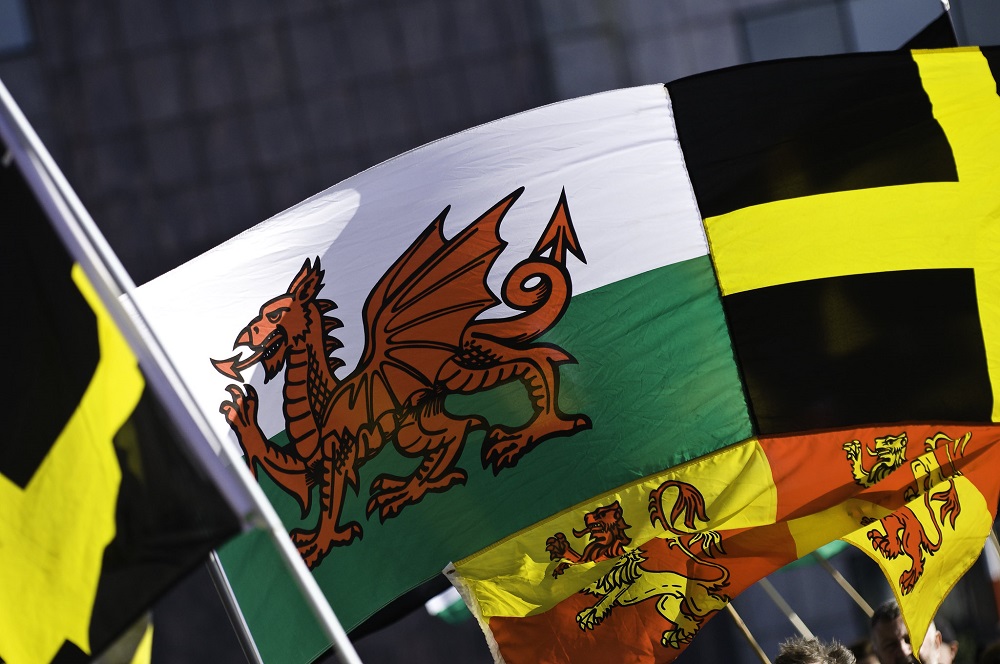What is Wales?

Ellis Hughes
Having a history of awkwardly refuting your Englishness to confused Spanish holiday reps throughout your childhood may indicate a tendency to join independence campaigns later on in life. It was in my case, anyway. However, as uncomfortable as those moments were – of self-consciously offering the words “Ryan Giggs” whilst the other British kids looked baffled to discover that there even was a difference in the first place – I never once waivered in my insistence that I was from Wales, not England. I was not a Brit.
These conversations would usually end with the other party seemingly deciding that I was being pedantic and humouring me by pretending to understand perfectly. “Ahhh, Ryan Giggs! Of course! Wales!”
This insistence was something that I picked up from Mum, who would go through the exact same routine with shopkeepers and waiters. It wasn’t until I was older that I began questioning what the point of it was in the first place. Does it matter that people understand that I am from Wales, and that Wales is separate to England? That England and Britain are not synonymous?
After I graduated from university, I went travelling around the USA for a couple of months with three friends, all of whom were English. I looked on in awe as they effortlessly tackled the dreaded “Where are you from?” question without any of the clumsiness that I was used to. “England,” they would brazenly reply, usually met by an exclamation of excitement. “And I’m from Wales,” I would sometimes add, which would usually receive a nod and an “Ahh OK”, the American unwilling to admit that they did not know where Wales was.
After a few days (and tired of my inevitable footnote), the others attempted to be more inclusive by telling people that we were from the UK. This caused even more confusion as one man asked “Ukraine? That’s next to Russia, right?” We laughed, but in the end the others clarified that they were English. Understanding dawned on the man’s face. “Well why didn’t you just say that then?” he joked.
For me, as for most of Wales, Euro 2016 was a watershed moment. Despite having successes in many other sports, most notably rugby, there is no escaping the fact that no other sport carries the global weight and gravitas of football. By not only qualifying but by reaching the semi-final, Coleman’s team put Wales on the map. Children would no longer need to incessantly plead that a country called Wales did in fact exist, because now there was hard evidence. Wales had played against England. It was an independent sporting nation. And a successful one, it seemed.
The recent rise of YesCymru, be it down to the Covid-19 pandemic, Brexit, or a mixed cocktail of everything else, is ultimately the result of a people who are tired of being ignored. But if we are to become known, what should we be known for? What is Wales?
Brand
Scotland’s independence campaign is much further along than ours here in Wales, which is not surprising considering that Scotland’s sense of national identity is less blurred. In a study conducted by the British Election Study, respondents were asked to rate how Scottish, Welsh, English or British they felt. Their answers were recorded on a 7-point scale, from 1 for those who feel no identification at all with each identity to 7 for those who identify with it “very strongly”. The average Scot came out as 5.7 for Scottish, which is high considering that 7 is the highest score possible, whilst the average score for their Britishness was 4.5.
In comparison, Wales came out as 5 for Welshness, with a surprisingly higher score of 5.5 for Britishness (which is narrowly behind the equivalent score of the English).
When I look at Scotland, I, like many others, envisage Scotland the brand. Scotch whiskey and haggis. Highlands and lochs. Tartan and bagpipes. These may seem like stereotypes, but in reality, they are things that create a sense of national identity and global recognition.
No Scot has ever had to explain their Scottishness to the extent that we Welsh have to. Scotland, like independent Ireland, is already known globally. It has the makings of an independent nation laid out in front of it. And truthfully? So do we here in Wales. Though frustratingly, some do not yet see it.
We need to decide, what is Wales? Are we a nation with our own culture and heritage, or an English afterthought? If we are to go alone, what will our “brand” be?
Are we mountains and castles? Hymns and arias? Bara Brith and beaches? These are questions that have troubled Welsh tourist boards for decades.
But the answer is simple. We already know what Wales is – it’s us.
Support our Nation today
For the price of a cup of coffee a month you can help us create an independent, not-for-profit, national news service for the people of Wales, by the people of Wales.






